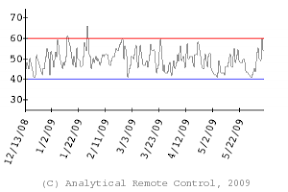8 No-Cost Tips to Guard against Identity Theft & Credit Card Fraud
Here's eight ways for you to guard against identity theft
while saving yourself time and money:
- Make sure your credit card company has your most
current phone number (especially your cell phone -or-
work number) so the card company can call
you immediately when they spot suspicious charge
patterns on your account.
- Don't ever use your ATM debit card for Internet
purchases. Your credit card fraud liability is limited
to $50 but ATM debit card fraud could drain all of the
available funds within your checking account.
- Be on the lookout for small but unusual transactions
such as frequent purchases at gas stations you did not
make.
- If you get a phone call or an e-mail about
suspicious activity on your account, give no
information over the phone or on-line.
Instead, write the card representative's name down on
paper and attempt to call them back at the number
listed on the back of your card.
- Frequently inspect your statements on-line.
- Call your credit card company immediately if a
monthly statement doesn't appear in the mail on time.
- Shred your statements once you've checked to make
sure they're correct.
- Shred new card solicitations promptly after
reading them.

















